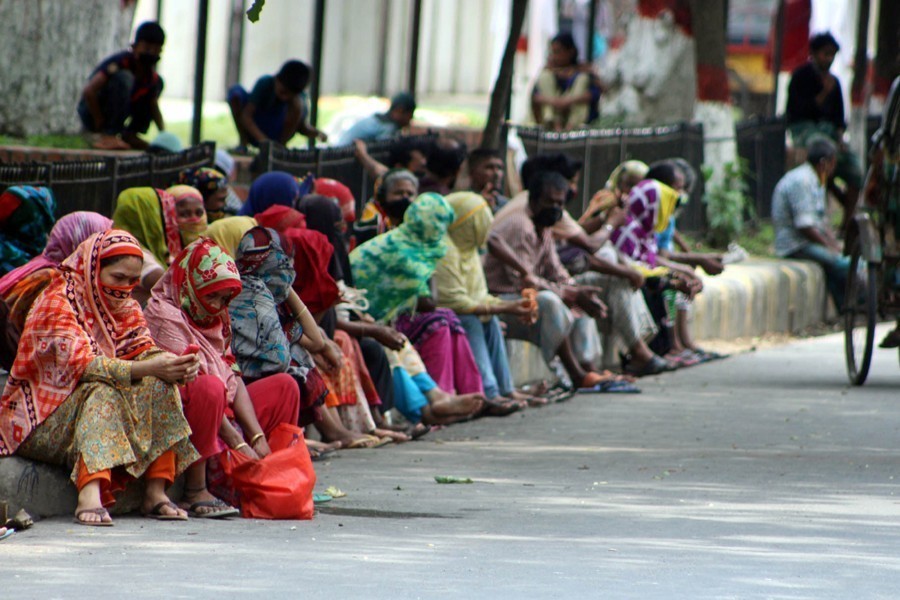Some 62 per cent of the rural households lost income during the Covid pandemic, while 42 per cent reported employment losses, according to a new study.
The surveyed households include those who were dependent on micro, small, and medium-sized enterprises (MSMEs) and those who were not (non-MSMEs).
The government stimulus did not reach them adequately, said the study.
Since risk mitigation was not possible, many households had to reduce consumption or use savings to weather the pandemic.
The Asian Development Bank (ADB) had partnered with the Bangladesh Institute of Development Studies (BIDS) to conduct the baseline study, styled 'Asia Small and Medium-Sized Enterprise Monitor 2021'.
The field survey was disrupted by surging Covid-19 cases and subsequent lockdowns in Bangladesh. Yet, the team was able to complete the survey in late December 2021 despite these difficult conditions and prepared the report in April 2022.
The objective of the study was to assess the benefits of rural microenterprises in terms of income and productivity and the role of microfinance in supporting microenterprise growth in Bangladesh.
In the study, Albert Park, chief economist and director general, economic research and regional cooperation department, ADB, opined that different governments had provided intensive financial assistance programmes to MSMEs during the coronavirus pandemic through debt restructuring, special refinancing schemes, and credit guarantees, which helped improve their access to bank credit. However, financing constraints remain high in many MSMEs in developing Asia, Mr Park said.
In the non-bank financial sector, it is hoped that microfinance institutions can fill the unmet financing demand from smaller firms and entrepreneurs, added Mr Park.
Contacted, Centre for Policy Dialogue (CPD) Research Director Dr Khondaker Golam Moazzem said though large entrepreneurs like export-oriented business were able to reap the benefit of the government's incentive wholly and effectively during the Covid pandemic, most of MSMEs received little portion of it.
The government should utilise the capacity and hands-on experiences of formal financial institutes, NGOs and microfinance institutions to disburse the large-scale financing or any kind of incentive for the microenterprises smoothly and transparently in the coming days, Dr Moazzem told the FE.
Based on the poverty map of the country from the 2016 Household Income and Expenditure Survey (HIES), a sample frame was developed with some 24,000 households from 124 villages in five districts in the impoverished Rangpur division of Bangladesh. Of them, about 3,000 households were randomly sampled, keeping the proportionality of MFI participation and MSME households from the census.
Another recent study conducted by BRAC Institute of Governance and Development (BIGD) in collaboration with Monash University, Australia, also finds that lockdown amid the Covid measures caused the majority of small enterprises to shut down, and during the early period of relaxing the lockdown, one-third of the enterprises were operating at limited capacity.
Demand drop and the burden of fixed costs to run the businesses were the prominent reasons behind the drastic fall in profit, said the BIGD study.
As a result, workers were losing jobs and the gender gap was widening, because female labour-intensive work, i.e. beauty parlour, tailoring, was affected harder, the study added.


